Best memory for 2020 iMac (27-inch): upgrade your RAM today
Have an older iMac? Get these RAM upgrades for more power!
While Apple charges a premium for memory (RAM) upgrades on all of its computers, one of the best aspects of the 2020 27-inch iMac is that RAM is user-upgradeable This means that you can skip Apple's in-house, expensive RAM upgrades and efficiently perform much more cost-effective ones yourself. Our best memory for Mac choices serves up several excellent third-party RAM upgrades that you can get right now.
Make your older iMac feel new again with an RAM upgrade
You can always trust iMore.
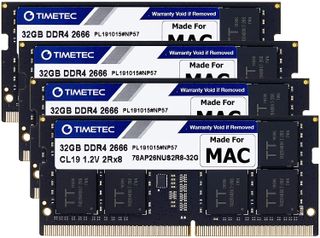
128GB for less
This set of four 32GB RAM sticks offers the maximum amount of memory you can put into a Mac for just a fraction of the price of Apple's upgrade option. Perfect for high-end video work and development or opening just a ton of Chrome tabs.
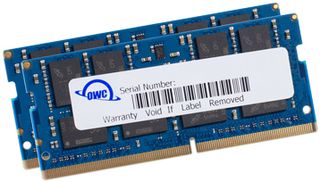
Top tier for most consumers
A kit of two 16GB RAM sticks from OWC, this is probably the most RAM that any consumer should get for their iMac, and maybe even most pros.
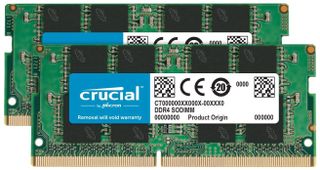
A 32GB alternative
Crucial's 32GB RAM kit is a reliable alternative to the OWC sticks, and like that kit, it consists of two 16GB RAM sticks. It's also noticeably less expensive than OWC's gear if you're looking to save some money.
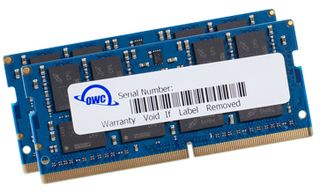
64 with room for more
If you're planning on eventually upgrading to 128GB but can deal with 64GB of RAM now, this kit of two 32GB sticks leaves two of your iMac's RAM slots open, so you can get this set again when you're ready to upgrade.
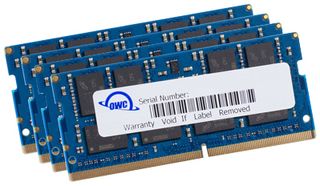
A cheaper way to 64GB
If you need 64GB of RAM but have no plans to expand to 128GB, pick up this four-stick kit to save some money and still get more memory than most people will use.
How to choose the right RAM for your 27-inch Intel iMac
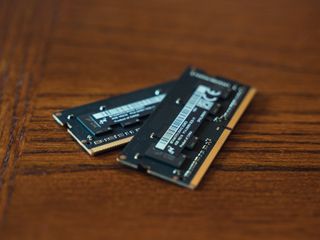
So, why do you want to go with third-party RAM at all instead of buying more RAM when you order your 27-inch iMac? It comes down to cost. For instance, if you need a massive 128GB of RAM in your iMac, it'll run you an additional $2,600 if you choose Apple's upgrade option. Get the Timetec Hynix 128GB RAM set instead and it's only $647.
When buying a memory upgrade for your iMac, my first piece of advice is the same for any other component: buy the best you can afford. While I would recommend spending money on a better graphics processor or more storage before you buy a RAM upgrade, memory is still worth upgrading if you can.
The exciting news for iMac owners is that you really only need to worry about capacity. The memory that you get for your iMac, and indeed, everything we've recommended, has to have these basic specifications:
- PC4-21333
- Unbuffered
- Nonparity
- 260-pin
- 2666MHz DDR4 SDRAM
Now here's the thing: nobody sells RAM marked with PC4-21333. Instead, you'll find RAM with PC4-21300, but don't worry. This memory is still compatible with your iMac. It has more to do with how some companies round a particular memory value than any actual spec. You shouldn't notice a difference.
As long as the RAM you get follows these specs, the only decision you have to make is about capacity. Every other spec is going to be the same except for the actual amount of memory you get.
When thinking about how much memory you should actually get, it comes down to a question of purpose. How are you going to use your iMac? Most people will be fine upgrading to 16GB of RAM. While you can get away with 8GB if your computer use is relatively light, if your iMac will do any amount of work, either professionally or for school, you'll want to upgrade to at least 16GB of RAM.
Why? Because your work is going to be more intensive than you think it is. More RAM makes it easier to have more applications open at once, have more browser tabs open, can lead to faster waking from sleep, and can just help your computer run faster. Plus, if you do have that one intensive application for work or school that needs a lot of RAM (and that could be Chrome), the more you have, the less your system chugs to a halt when you're using it.
I'd say that if you can swing it, get 32GB. For nearly every student out there and most professionals, it's all you'll need. If you spend a lot of time on your computer, 32GB should give you the headroom to handle anything that's thrown at you, even video and audio editing, without having to worry. If you're working professionally in video or high-end development, consider 64GB or 128GB.
Best memory for 2020 iMac (27-inch): Our recommendation
For most people, 16GB will be enough, and because of that, we'd recommend the OWC 16GB DDR4 RAM kit. It's only one stick, but it leaves your other RAM slots open if you want to expand up to 64GB by just buying this kit three more times.
If you want more headroom for things like more intensive applications or more browser tabs, most consumers, and indeed, most professionals, will be okay with the OWC 32GB DDR4 RAM kit. We'd select the OWC kit because it's a reliable product with a long-standing presence in the Mac community. While much of that is valid for Crucial, some of us have had some issues with Crucial memory in the past that I haven't encountered with OWC.
Are you ready to ditch Intel for Apple silicon? Be sure to check out our list of the best Macs you can currently buy.
Master your iPhone in minutes
iMore offers spot-on advice and guidance from our team of experts, with decades of Apple device experience to lean on. Learn more with iMore!
Joseph Keller is the former Editor in Chief of iMore. An Apple user for almost 20 years, he spends his time learning the ins and outs of iOS and macOS, always finding ways of getting the most out of his iPhone, iPad, Apple Watch, and Mac.

